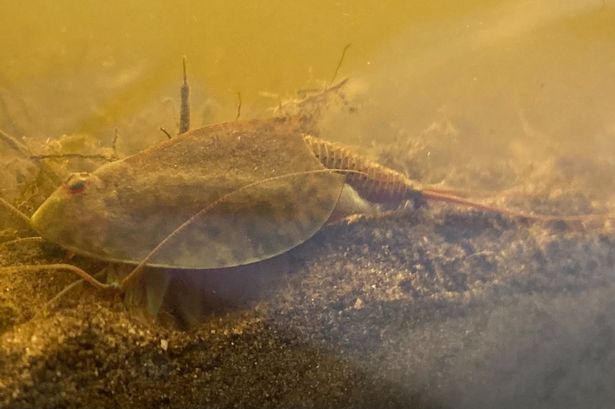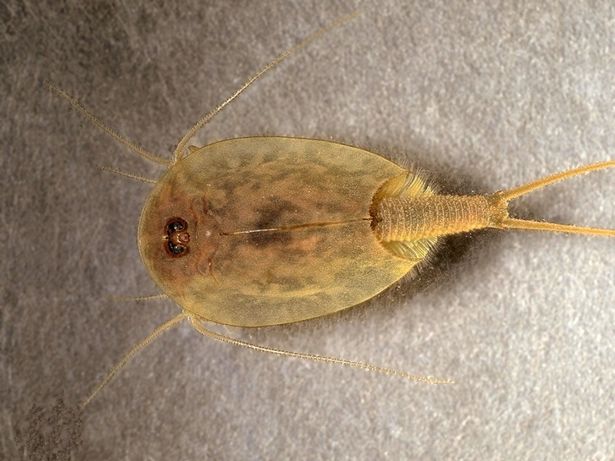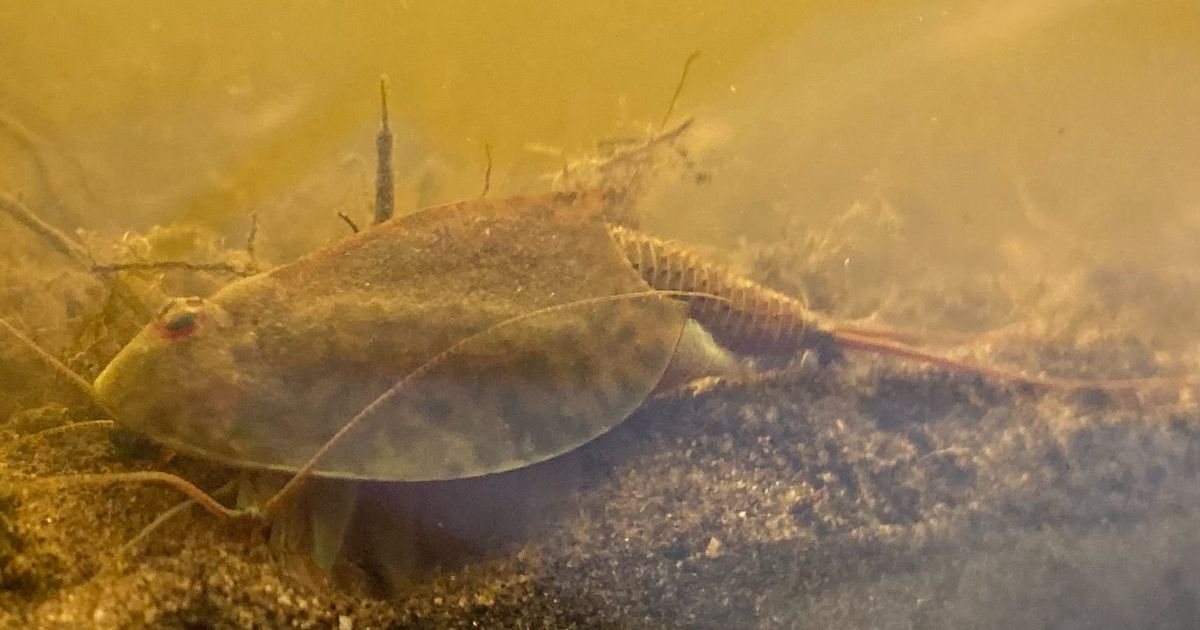The tadpole shrimp has been returned to RSPB Scotland’s Mersehead Reserve in Dumfries and Galloway after more than 75 years. The tadpole shrimp has returned to Scotland(Image: RSPB Scotland)
The tadpole shrimp has returned to Scotland(Image: RSPB Scotland)
The recent wet weather has helped a new population of one of the UK’s most ancient creatures to return to Scotland.
The tadpole shrimp has been returned to RSPB Scotland’s Mersehead Reserve in Dumfries and Galloway after more than 75 years. The creature is a relative of one of the oldest known animal species in the world – a species with fossils dating back 220 million years.
It is only the third population of the shrimp in the UK – the other two are at the nearby Wildfowl and Wetland Trust (WWT) site at Caerlaverock and the New Forest in Hampshire. Tadpole shrimp eggs were introduced at Mersehead in the summers of 2024 and 2025 – and recent rainfall has helped to provide the necessary rehydration for them to hatch.
Craig Macadam, conservation director at Buglife, told the BBC: “It’s been over 75 years since the tadpole shrimp has swum in pools at Mersehead, lost from this stretch of coast because of coastal erosion.
“Bringing this species back to Mersehead is the culmination of many years of surveys, research and preparation by many organisations and individuals. This work will help secure the future of this species in Scotland, and should pave the way for further translocations to try and restore and enhance its original UK distribution.”
 The creature is a relative of one of the oldest known animal species in the world(Image: RSPB Scotland)
The creature is a relative of one of the oldest known animal species in the world(Image: RSPB Scotland)
The last official record of the species at the site was in 1948. It is thought they were wiped out in the 1960s when the area was engulfed by the sea. Now, through the conservation programme Species on the Edge, wildlife charities Buglife, RSPB Scotland and WWT have been working with local ecologist Larry Griffin of ECO-LG Ltd to reintroduce the shrimp.
Recent wet weather has finally allowed the eggs to hatch and two adult tadpole shrimps were spotted at the site this month for the first time in more than three-quarters of a century. Nick Halfhide, chief executive of NatureScot, said it was a great example of how people were “working every day to restore and value Scotland’s nature”.
He added: “Species on the Edge is one of the country’s most ambitious conservation projects to date and it is fantastic to see that, through communities and partnerships, species recovery in Scotland is achievable.”
 Join the Daily Record WhatsApp community!
Join the Daily Record WhatsApp community!
Get the latest news sent straight to your messages by joining our WhatsApp community today.
You’ll receive daily updates on breaking news as well as the top headlines across Scotland.
No one will be able to see who is signed up and no one can send messages except the Daily Record team.
All you have to do is click here if you’re on mobile, select ‘Join Community’ and you’re in!
If you’re on a desktop, simply scan the QR code above with your phone and click ‘Join Community’.
We also treat our community members to special offers, promotions, and adverts from us and our partners. If you don’t like our community, you can check out any time you like.
To leave our community click on the name at the top of your screen and choose ‘exit group’.
If you’re curious, you can read our Privacy Notice.
The reason the tadpole shrimp has managed to endure so long, surviving even ice ages, can be attributed to its “very clever biology”.
All tadpole shrimps in the UK are self-fertile female hermaphrodites – meaning a population can start from just one hatched egg. They have adapted to survive highly-inhospitable conditions living in seasonal pools or puddles which dry out in the summer.
These pools may only last a few weeks before drying out, and then it may be years or even decades before the water returns. When the pools dry out all predators and competitors are killed off.
Tadpole shrimps have very rapid development, maturing from an egg to adulthood in just two to three weeks.

